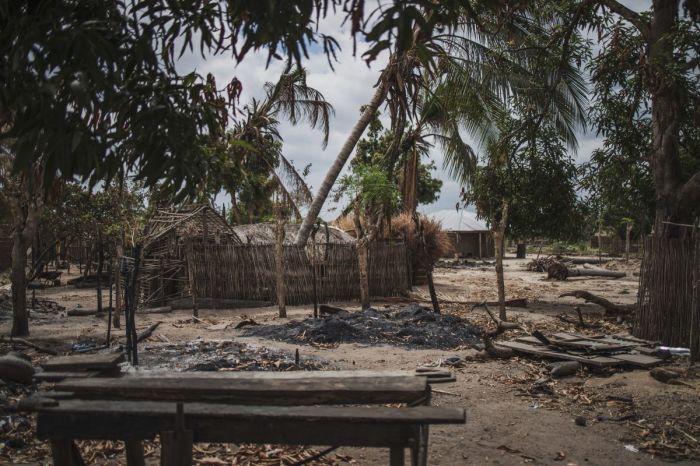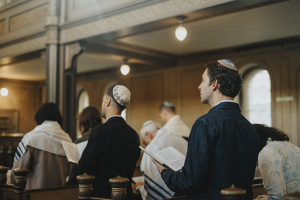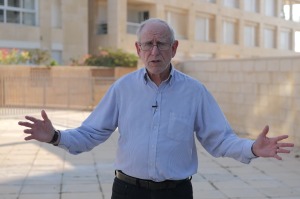Over 50 beheaded by ISIS-aligned extremists in Mozambique raid
Terrorists herded fleeing victims to soccer fields where many were executed

Suspected Islamic State-aligned militants beheaded dozens of people and abducted others in weekend raids in the southern African country of Mozambique, according to state media.
Bernardino Rafael, who commands Mozambique’s police force, told media during a Monday briefing that extremists carried out attacks on several villages in the Miudumbe and Macomia districts of the Cabo Delgado province. With the beheading of over 50 people, Rafael said the terrorists also abducted women and children as well as burned down homes.
“They burned the houses then went after the population who had fled to the woods and started with their macabre actions,” Rafael said, according to Al-Jazeera.
Witnesses of the attack over the weekend told local media that the perpetrators herded residents onto a local soccer field in Mautide, where they were killed.
According to the BBC, the privately-owned Pinnacle News reported that villages in Mautide who tried to run were taken to the field and chopped to pieces.
“Police learned of the massacre committed by the insurgents through reports of people who found corpses in the woods,” an unnamed officer in the neighboring Mueda district was quoted as saying, according to Al-Jazeera.
“It was possible to count 20 bodies spread over an area of about 500 meters (1,640 feet). These were young people who were at an initiation rite ceremony accompanied by their advisers.”
One aid worker told the outlet that body parts of victims had been sent to their families for burial on Tuesday.
According to the BBC, sources told the state-run Mozambique News Agency that another group of attackers raided Nanjaba village on Friday night while chanting “Allahu akbar,” an Arabic phrase meaning “Allah is the greatest.”
Along with the destruction of homes, militants were said to have beheaded two people and abducted several women.
The oil-rich Cabo Delgado province, a coastal region on the Indian Ocean, has seen a rise of terror attacks since 2017 due to the emergence of a jihadi movement that has displaced thousands and killed hundreds.
In the region, security forces have been fighting a group called Ahlu Sunnah Wal Jammah. ASWJ officially pledged allegiance to IS last year and became part of its Islamic State Central Africa Province, according to the New York-based Counter Extremism Project. The group is known locally as Al-Shabaab but is not believed to have an association with the terror group known by the same name in Somalia.
Although some of the group’s attacks have been claimed by the IS, some question how concrete the links between IS and the ASWJ are since the group is made up of mostly local youth from an impoverished part of the country.
The United Nations previously warned that hundreds of villages have been burned and abandoned because of an “indiscriminate campaign of terror” in the last three years.
Last month, Amnesty International estimated that as many as 2,000 people have been killed in the conflict since 2017. Also, as many as 300,000 have been displaced.
In April, about 52 people were massacred, with some being beheaded, in another attack in the Cabo Delgado province.
In May, Mozambique’s government called for regional help in its battle against the Islamic extremists.
“Terrorism, you can’t fight alone, this is the experience which we have,” President Filipe Nyusi said earlier this year when he met with other African leaders. “We need to share forces, not only in the region but probably for Africa.”
In October, about 300 ASWJ militants attacked a Tanzanian village near the border of Cabo Delgado. According to Bloomberg, the perpetrators burned down homes, killed three soldiers, destroyed vehicles and stole military equipment.
In August, ASWJ militants attacked villagers in the port of Mocimboa de Praia, where militants reportedly overtook government troops to temporarily seize control of the area, according to the BBC. The Counter Extremism Project stated that the “port is pivotal in the transit of oil and gas equipment.”
“Mozambique’s government, however, is ill-equipped to counter the growing number of radical insurgents,” the project warned in a report. “Additionally, there have been reports that Mozambique’s security forces have fled scenes of insurgent activity as the number of insurgents greatly outnumbers security forces in the area.”
Islamic extremist attacks have also risen in other regions of Africa in the last several years, such as Nigeria, where Boko Haram and Islamic State West Africa Province have displaced millions in the northeast. Additionally, Sahel countries like Burkina Faso have also seen an exponential increase in displacement due to radical terrorism.





























